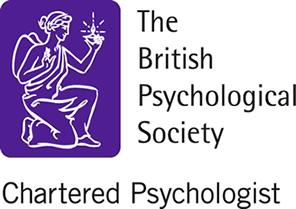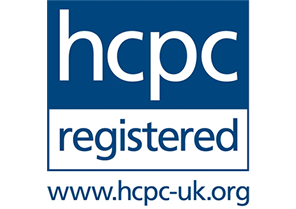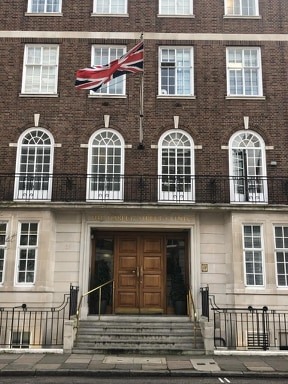
Professor Steven Kemp
Consultant Clinical Neuropsychologist
Welcome to Professor Steven Kemp's Website
Professor Steven Kemp is a Consultant Clinical Neuropsychologist and Chartered Clinical Psychologist. Professor Kemp is an Honorary NHS Consultant, and has private consulting rooms in Leeds and London, accepting private referrals and medico-legal instructions. He is a member of the Expert Witness Institute (EWI) and regularly provides neuropsychological examinations and psychological examinations.
Professor Kemp provides the following range of examinations and treatments / rehabilitation:
- Neuropsychological examinations
- Psychological examinations
- Psychological treatment including Cognitive Behaviour Therapy (CBT)
- Rehabilitation for cognitive and psychological difficulties following brain injury, for neurological disorders and for functional neurological disorders (FND)
Professor Kemp's curriculum vitae can be viewed and printed from the Curriculum Vitae section. If you wish to make referral, please contact Professor Kemp, or his secretary, Angie Marsden.




Clinical Services provided
The following services are available:
A neuropsychological examination involves determining the presence of a traumatic brain injury and quantifying the effects of the injury or neurological condition on cognitive functioning (i.e. memory, concentration and other cognitive abilities) neurobehavioural functioning (i.e. personality and behaviour) and psychological functioning (i.e. post-traumatic stress disorder (PTSD), anxiety, depression and adjustment difficulties etc.). Patients are seen for a detailed clinical interview and given a battery of neuropsychological tests. Two appointments are typically required or a single long appointment. In a medico-legal context, a neuropsychological examination typically involves between 22-30 hours' work in total, depending on the number of documents to review and the amount of cognitive testing required.
Psychological examinations involve a detailed clinical interview to determine the psychological effects of an accident or injury (i.e. depression, post-traumatic stress disorder (PTSD) and psychological functioning). Patients are seen for a single consultation. In a medico-legal context, a psychological examination typically involves between 12-20 hours' work in total depending on the number of documents to review and the number of psychological measures used.
Psychological treatment for psychological disorders following injury or illness. Typically conditions that Professor Kemp would treat include post-traumatic stress disorder (PTSD), depression, anxiety or general psychological and adjustment difficulties following injury. The number of treatment sessions provided is in line with the Department of Health's Evidence Based Practice Guidelines and various NICE and good practice guidelines. Professor Kemp has a special clinical and research interest in brain injury, epilepsy, dementia, medically unexplained symptoms (MUS) / functional neurological disorder (FND) / functional cognitive disorder (FCD).
Rehabilitation for cognitive and psychological difficulties following traumatic brain injury. Professor Kemp also has expertise in treating the effects of brain trauma or neurological illness. For example, cognitive rehabilitation and psychological approaches to promote cognitive functioning, psychosocial adjustment and family functioning following brain injury or neurological illness.
When instructed to provide an assessment report, Professor Kemp will comment on the effects of the accident, the relevance of pre-accident history, prognosis and make treatment recommendations as appropriate. When instructed to provide psychological treatment, Professor Kemp will provide an interim and final summary of treatment progress.
My Curriculum Vitae
Professor Steven Kemp (BSc (Hons). D Clin Psychol. PG Diploma. AFBPsS)- Consultant Clinical Neuropsychologist
Special areas of interest:
- Traumatic Brain injury
- Neuropsychological assessment for traumatic brain injury and acquired neurological disorders
- Performance validity tests (PVTs) and symptom validity tests (SVTs)
- Epilepsy
- Dementia and acquired neurological conditions
- Psychological assessment
- Non-organic syndromes / Medically Unexplained Symptoms (MUS) / Functional Neurological Disorder (FND) / Functional Cognitive Disorder (FCD)
- Psychological treatment - Cognitive Behaviour Therapy (CBT)
- Rehabilitation for cognitive / psychological difficulties following brain injury
Click here to download Professor Kemp's curriculum vitae as a PDF
Qualifications and experience:
I am Professor Steven Kemp; I hold the degree of Bachelor of Science (Psychology - First Class) awarded from the University of Hull and the degree of Doctor of Clinical Psychology awarded from the University of Leeds. I am registered with the British Psychological Society (BPS) as a Chartered Clinical Psychologist (C. Psychol). I have completed a Post Doctoral Diploma in Clinical Neuropsychology at the Maudsley Hospital, King's College, University of London. I hold practitioner full-membership of the Division of Neuropsychology of the British Psychological Society. I am a Visiting Professor a Leeds Beckett University, School of Social Sciences. I am registered with the Health and Care Professions Council (HCPC). I am an Associate Fellow of the British Psychological Society.
In my NHS practice, I have held the position of Consultant Clinical Neuropsychologist and head of the community brain injury rehabilitation team in Leeds. I have held the position of Consultant Clinical Neuropsychologist and joint head of the neuropsychology service at St. James' University Hospital, Leeds. I am currently an Honorary Consultant Clinical Neuropsychologist with Leeds Teaching Hospitals NHS Trust. I specialize in the assessment and treatment of brain injured patients and neurology patients. This involves understanding the neurocognitive, neurobehavioral and psychological / social impact of brain injury and neurological disease. I routinely see brain injured patients and neurology patients for neuropsychological assessments in order to determine the effects of injury on cognitive functioning (e.g. memory and concentration), personality and behaviour and provide treatment and rehabilitation. I also see patients to assess and treat the psychological effects of injury or illness. For example, post traumatic stress disorder (PTSD), anxiety, depression or psychological symptoms that can result from traumatic experiences or neurological illness.
I have a special clinical and research interest in - traumatic brain injury, memory disorders, performance validity tests (PVTs) and symptom validity tests (SVTs), the neuropsychology of epilepsy, neuropsychological rehabilitation, dementia and the aetiology and psychological treatment of medically unexplained symptoms (MUS) / functional neurological disorder (FND) / functional cognitive disorder (FCD).
I have over twenty-five years' experience in the field of Clinical Neuropsychology and I am the author of many publications. I am cited in the British Psychological Society (BPS) Directory of Chartered Clinical Psychologists and the BPS Directory of Expert Witnesses. I am listed on the BPS Specialist Register in Clinical Neuropsychology (SRCN). I am an Associate Fellow of the British Psychological Society (BPS). I am a member of the Expert Witness Institute (EWI).

Professor Kemp's Consulting Room Locations
 Spire Leeds Hospital
Spire Leeds HospitalRoundhay Hall
Jackson Avenue
Roundhay
Leeds
LS8 1NT
(correspondence address)
Tel: 0113 269 3939
Fax: 0113 268 1340
 Nuffield Hospital Leeds
Nuffield Hospital Leeds2 Leighton Street
Leeds
LS1 3EB
Tel: 0113 388 2067
 London - The Harley Street Clinic
London - The Harley Street ClinicThe Harley Street Clinic Diagnostic Centre
16 Devonshire Street
London
W1G 7AF
Tel: 020 7034 8137
info.thsc@hcahealthcare.co.uk
www.theharleystreetclinic.com
Clinical Neuropsychologist and Chartered Clinical Psychologist Professor Steven Kemp holds private clinics at the Leeds Spire Hospital (formerly the BUPA Hospital), situated in the north of the city, and also at the Nuffield Hospital in the city centre.

Publications
Below are Professor Kemp's main publications:
Allen R J, Kemp S, Morson S, Wells C, Sissons K and Baddeley AD (2019). Does telephone testing of long-term memory retention and forgetting influence performance in young and older adults? An examination using the Crimes Test. The Neuropsychologist. 8. 17-24.
Baddeley A, Allen R, Atkinson A and Kemp S (2019). The problem of detecting long-term forgetting: Evidence from the Crimes Test and the Four Doors Test. Cortex. Jan;110:69-79.
Baddeley A, Allen R, Atkinson A and Kemp S (2018). Detecting long-term forgetting: The case of the Crimes Test (verbal) and the Four-Doors Test (non-verbal). Poster presented at the British Neuropsychiatry Association (BNPA) conference, London 2018.
Baddeley A and Kemp S (2021). Crimes, doors and faster forgetting: The story of a new type of memory disorder in epilepsy and how to detect it. Epilepsy Professional. Published September 2021.
Baker GS and Kemp S (Co-Chairs) (2021). Good Practice Guidelines: Guidance on the recording of neuropsychological testing in medico-legal settings. The British Psychological Society (BPS) Division of Neuropsychology (DoN).
Baker G and Kemp S (2020). Surviving the COVID-19 pandemic from a psychological perspective. Published on the Epilepsy Action website and International Bureau for Epilepsy website (May 2020).
Baker G and Kemp S (2020). Surviving the COVID-19 pandemic from a psychological perspective: Advice for people with epilepsy and their families. International Epilepsy News: Issue 2, 4-5.
Bhakta BB, Dubbins N, Cozens JA and Kemp S (2004). The interaction between simultaneous attentional loading and arm movement tasks in people with stroke. Poster presentation at the European Congress Physical Rehabilitation Medicine.
Biswas R and Kemp S (2002). Postal survey of sleep disorder post head injury. Poster presentation at the European Congress of Physical Rehabilitation Medicine.
Brown RJ, Bouske JF, McDonald A, Kirby A, Baker GA, Kemp S and Reuber M (2013). Emotional dysregulation, alexithymia and attachment in psychogenic non-epileptic seizures. Epilepsy & Behavior. 29. 178-183.
Colbeck K, Kemp S, Goulding PJ et al (2011). A Multicentre Service Evaluation of Lacosamide. Poster and paper presented at the 29th International Epilepsy Congress in Rome.
Flores L, Kemp S et al (2012). Clinical experience with oral Lacosamide as adjunctive therapy in adult patients with uncontrolled epilepsy: a multicentre study in epilepsy clinics in the United Kingdom (UK). Poster and paper presented at the European Congress on Epileptology, London.
Flores L, Kemp S, Colbeck K et al (2012). Clinical experience with oral Lacosamide as adjunctive therapy in adult patients with uncontrolled epilepsy: a multicentre study in epilepsy clinics in the United Kingdom (UK). Seizure. Sep; 21(7):512-7.
Garlovsky J, Reynders H, Kemp S, Caswell H and Baker G (2009). Illness perceptions & epilepsy surgery psychosocial outcomes. Poster presentation at the ILAE conference, Sheffield (UK).
Gibson RM, Kemp S, Duff A and Nelson M (2003). Brain injury and heading in soccer. BMJ. Rapid response. Published 26th December 2003.
Graham C, Stuart S, O'Hara D and Kemp S (2017). Using Acceptance and Commitment Therapy (ACT) to improve outcomes in Functional Movement Disorders: A case study. Clinical Case Studies. 1-16.
Graham C, O'Hara D and Kemp S (2018). A case series of Acceptance and Commitment Therapy (ACT) for reducing symptom interference in functional neurological disorders (FND). Clinical Psychology & Psychotherapy. 25(3): 489-496.
Graham CD, Kemp S, Radakovic R and Kapur N (2018). Clinical neuropsychology in the management of myotonic dystrophy: implications arising from Fujino et al. Muscle & Nerve. 57(5): 701-704.
Goldstein L H, Robinson EJ, Reuber, M et al (2019) (Kemp S et al as CODES Study collaborators). Characteristics of 698 Patients With Dissociative Seizures: A UK Multicentre Study. Epilepsia. Nov;60(11):2182-2193.).
Goldstein L H, Robinson EJ, Mellers JD et al (2020) (Kemp S et al as CODES Study collaborators). Cognitive behavioural therapy for adults with dissociative seizures (CODES): a pragmatic, multicentre, randomised controlled trial.
Hall-Patch L, Brown R, House A, Howlett S, Kemp S, Lawton G, Mayor R, Smith P, Reuber M; NEST collaborators (2010). Acceptability and effectiveness of a strategy for the communication of the diagnosis of psychogenic non-epileptic seizures. Epilepsia. 51(1). 70-78.
Hampson NE, Kemp S, Moulin CJA, Coughlan AK and Bhakta B (2014). Effort test performance in clinical acute brain injury, community brain injury, and epilepsy populations. Applied Neuropsychology : 21(3):183-94.
Illman NA, Rathbone CJ, Kemp S and Moulin CJA (2011). Autobiographical memory and the self in a case of transient epileptic amnesia. Epilepsy & BehaviourEpilepsia. May; 21(1):36-41. Epub 2011 Apr 8.
Illman, N, Moulin CJA, Kemp S and Morris R. (2020). Associative memory and confidence in temporal lobe epilepsy: metacognition and recollection. (Manuscript under review by Cortex).
Illman N A, Moulin CJA and Kemp S (2015). Assessment of everyday memory functioning in temporal lobe epilepsy and healthy adults using the multifactorial memory questionnaire (MMQ). Epilepsy Research. 113, 86-89.
Illman N, Kemp S, Souchay C, Morris RG and Moulin C (2016). Assessing a metacognitive account of associative memory impairments in temporal lobe epilepsy. Epilepsy Research and Treatment. Volume 2016. Article ID 6746938, 11 pages.
Kapur N, Kemp S & Baker G (2021). Response to Editor Re: 'Functional Cognitive Disorder: dementia's blind spot'. Brain. Published 10 April 2021. Brain, awab008, https://doi.org/10.1093/brain/awab008
Kapur N and Kemp S (2019). Cases of Hippocampal Memory Loss: Dr Z, the engineer and the glove cutter. (Book chapter). In Cases of Amnesia: Contributions to Understanding Memory and the Brain, Eds: MacPherson S & Della Sala S. Routledge Press.
Kapur N and Kemp S (2016). Neuropsychological assessment: Principles, Pearls and Perils. The Neuropsychologist. Issue 2 - August 2016. 7-15.
Kemp S, Kapur M, Graham C and Reuber M (2022). Functional Cognitive Disorder: Differential diagnosis of common clinical presentations. (Manuscript accepted for publication by Archives of Clinical Neuropsychology).
Kemp S, Morley S and Anderson E (1999). Coping with epilepsy: Do illness representations play a role. British Journal of Clinical Psychology. 38. 43-58.
Kemp S and Morley S (2001). A method for assessing patients' cognitive representations of epilepsy. Epilepsy & Behaviour. 2. 247-271.
Kemp S and Young A W (2003). A case of paraprosopia and its treatment. Cognitive Neuropsychiatry. 8(1). 43-56.
Kemp S, Biswas R, Neumann V and Coughlan AK (2004). The value of melatonin for sleep disorders occurring post-head injury: a pilot RCT. Brain Injury. 18(9). 911-919.
Kemp S, Goulding PJ, Spencer J and Mitchell AJ (2005). Unusually Rapid and Severe Cognitive Deterioration after Mild Traumatic Brain Injury: A Longitudinal Case Study. Brain Injury. 19(14). 1269-1277.
Kemp S (2006). Freud in perspective. The Psychologist. 19(10). P 586.
Kemp S, Coughlan AK, Goulding PJ and Abercrombie K (2007). Remote memory following right temporal lobectomy: a longitudinal case study. Epilepsy & Behaviour. 10. 195-202.
Kemp S, Feely M, Hay A et al (2007). Psychological factors and use of antiepileptic drugs: Pilot work using an objective measure of adherence. Psychology Health & Medicine. 12(1). 107-113.
Kemp S, Coughlan AK, Rowbotton C, Teggart V and Baker GA (2008). The base rate of effort test failure in patients presenting to neurology with medically unexplained symptoms (MUS). J Psychosomatic Research. 65(4). 319-25.
Kemp S, Wilkinson K, Caswell H, Reynders H and Baker G (2008). The base rate of Wada test failure. Epilepsy & Behaviour. 13(4):630-3.
Kemp S, Agostinis A and Coughlan AK (2010). Analgesia and other causes of amnesia that mimic post-traumatic amnesia (PTA): A cohort study. J Neuropsychol. Sep; 4(Pt 2): 231-6.
Kemp S (2011). Accelerated forgetting in patients with epilepsy. Learning Disability and Epilepsy Review. Vol 2 (3). P8-11.
Kemp S, Illman NA, Moulin CJA and Baddeley A (2012). Accelerated long-term forgetting (ALF) and transient epileptic amnesia (TEA): two cases of epilepsy related memory disorder. Epilepsy & Behavior. 24(3). 382-388.
Kemp S, Hughes C and Spilling C (2013). Medically Unexplained Symptoms (MUS): What do Current Trainee Psychologists, Neurologists and Psychiatrists Believe? Open Journal of Medical Psychology. 2. 12-20.
Kemp S, Garlovsky J, Baker G, Reynders H and Shah E (2016). Predicting the psychosocial outcome of epilepsy surgery: A longitudinal perspective on the 'burden of normality'. Epilepsy & Behaviour. Jul: 60:149-52.
Kemp S, Duff A and Hampson NE (2016). The neurological, neuroimaging and neuropsychological effects of playing professional football: Results of the UK five-year follow-up study. Brain Injury. May 16:1-7. [Epub ahead of print].
Kemp S, Prendergast G, Karapanagiotidis T, Baker G, Kelly TP, Patankar T and Keller SS (2018). Concordance between the Wada test and neuroimaging lateralization: Influence of imaging modality (fMRI and MEG) and patient experience. Epilepsy & Behaviour, 78: 155-160.
Kemp S, Goulding PJ, Geldard J and Rowbottom C (2017). Levetiracetam use in epilepsy patients: findings of a 3-year observational study. (Manuscript under review by Epileptic Disorders).
Kemp S, Baker GA and Dewer B-K (2018). mTBI - a controversial field. Letter published in The Psychologist. September 2018.
Kemp S, Graham CD, Chan D, Kitchingman H, Vickerman K and Reuber M (2018). The frequency and management of seizures during psychological treatment among patients with psychogenic non-epileptic seizures and epilepsy. Epilepsia. Apr; 59(4): 844-853.
Kemp S (2018). An interview with Tony Husband. The Neuropsychologist. Issue 5.
Kemp S (2019). An interview with Paul Broks. The Neuropsychologist. Issue 7: 71-75.
Kemp S (2019). An interview with Professor Narinder Kapur. The Neuropsychologist. 8. 82-84.
Kemp S (2020). An interview with Professor Anna Abraham. The Neuropsychologist. 9. 83-84.
Kemp S (2020). An interview with Professor Gus Baker. The Neuropsychologist. 10. 73-76.
Kemp S (2021). An interview with Professor Laura Goldstein. The Neuropsychologist. Oct.12. 68-71.
Kemp S, Kapur N, Bunnage M, Dorris L, Moore P, Friedland D (2020). Response to McWhirter et al. Journal of Neurology Neurosurgery & Psychiatry. Published 29 July 2020. https://jnnp.bmj.com/content/early/2020/07/10/jnnp-2020-323776.responses
Kerr M, Kemp S et al (2011). International Consensus Clinical Practice Statements for the Treatment of Neuropsychiatric Conditions Associated with Epilepsy. Epilepsia. Nov; 52(11): 2133-8.
Maguire M, Sivakumar G, Wright E, Goulding P, Warren D, Kemp S & Ray M (2017). Temporal lobe encephaloceles: a surgically treatable cause of drug resistant epilepsy. Poster presented at the 32nd International Congress on Epilepsy in Barcelona, Spain.
Mitchell AJ, Kemp S, Benito-Leon J and Reuber M (2010). The influence of cognitive impairment on health-related quality of life in neurological disease. Acta Neuropsychiatrica. 22(1). 2-13.
Moore D, Bunnage M, Kemp S, Dorris L and Baker GS (2021). Guidance on the assessment of performance validity in neuropsychological assessments. The British Psychological Society (BPS) Division of Neuropsychology (DoN).
Mountjoy T, Field S, Stapleton A and Kemp S (2017). Experiences of Attending Neuropsychological Assessment: A Service Evaluation. British Psychology Society (BPS) Clinical Psychology Forum. April: 292: 24-31.
Reuber M, Howlett S and Kemp S (2005). Psychological treatment of patients with psychogenic non-epileptic seizures. Expert Rev Neurother. S5(6). 737-52.
Shah E, Reuber M, Goulding PJ, Flynn C, Delanty N and Kemp S (2015). Clinical experience with adjunctive Perampanel in adult patients with uncontrolled epilepsy: A UK and Ireland multicentre study. Poster presented at the International Epilepsy Congress in Istanbul (Awarded a Best Poster Rosette).
Shah E, Reuber M, Goulding PJ, Flynn C, Delanty N and Kemp S (2016). Clinical experience with adjunctive Perampanel in adult patients with uncontrolled epilepsy: A UK and Ireland multicentre study. Seizure. Jan; 34:1-5.
Halpin SJ, McIvor C, Whyatt G, Adams A, Harvey O, McLean L, Walshaw C, Kemp S, Corrado J, Singh R, Collins T, O'Connor RJ, Sivan M (2022). Post-discharge symptoms and rehabilitation needs in survivors of COVID-19 infection: A cross-sectional evaluation. J Med Virol. Feb;93(2):1013-1022. doi: 10.1002/jmv.26368. Epub 2020 Aug 17. PMID: 32729939.
Williams S, Kemp S, Graham C, Relton S, Southall C, Alty J. Maguire M (2022). Diagnosis and referral for psychological therapy are associated with reduced risk of Emergency Department re-attendance in Functional Neurological Disorder. (Manuscript submitted to Journal of the Neurological Sciences).
Whittaker R, Kemp S and House A (2007). Outcome in mild traumatic brain injury: A longitudinal study. Journal of Neurology Neurosurgery & Psychiatry. Jun; 78(6): 644-6.
Appointments
Consultations and other appointments with Professor Steven Kemp are managed by his Personal Assistant / Secretary, Angie Marsden. She can be contacted on angie@drstevenkemp.co.uk. Waiting times are typically around 10 weeks.

